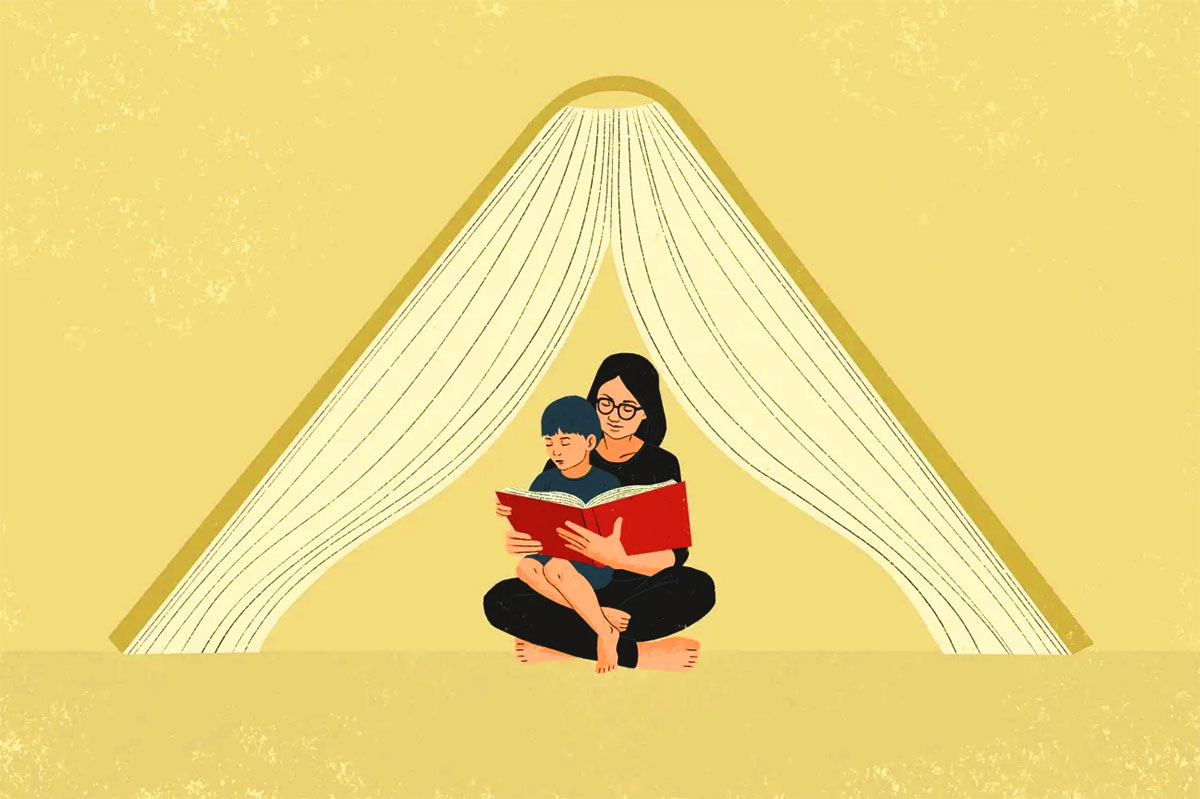Opinion: How home-schooling became the biggest trend in American education
A new Washington Post report finds that home-schooling now crossing all political, demographic and geographic lines
Jay Evensen - NOV 2, 2023
I have an 8-year-old granddaughter in Virginia who is being home-schooled. Her mother didn’t know she was part of a powerful nationwide trend bubbling just beneath the surface of American culture, brought to light this week in a Washington Post report.
The most important thing to her, she told me in a text, was to be able to meet her daughter where she is, academically — adjusting lesson plans to move quickly through materials she has mastered, while spending more time on things her daughter is struggling to learn.
The local public school wasn’t able to do that.
This is all new and fascinating to me. When my wife and I had school-age children, home-schooling was seen as something on the fringes of society. That stigma seems to be gone now, drop-kicked by a pandemic that led to a crisis in early learning.
The Washington Post published an in-depth district-by-district analysis nationwide (where figures were available) and concluded home-schooling is the “fastest growing form of education” in the United States.
Using reliable data from 32 states, the paper found that, in states with comparable enrollment figures, home-schooled students increased by 51% between the 2017-18 and 2022-23 school years, compared with 7% in private schools and a 4% drop in public school enrollment.
The surge crosses all demographic, geographic and political lines — it increased 373% over six years in the small Southern town of Anderson, South Carolina, and by 358% during the same time in a school district in the Bronx, near the heart of New York City. Washington, D.C., saw a 108% increase in home-schooled students over that time.
Utah wasn’t included in the report, but a separate study this year by the Age of Learning ranked Utah third in the nation among best places for home-schooling.
The Post found these figures spiked during the pandemic and have fallen a little since then, but the number of home-schoolers remains far above pre-pandemic levels.
The question, of course, is what are the long-term effects of this? Are we fostering a generation of narrowly focused people absent of analytical skills or exposure to differing viewpoints? After all, many states, including Utah, do little to monitor what is being taught. The Utah State Board of Education website says, “A local school board may not require a parent of the home-schooled minor to maintain records of instruction or attendance.”
How important are the concerns of a Florida school board member who told the Post, “Many of these parents don’t have any understanding of education?”
Or are we fostering a generation of people with a love of learning that comes from individual attention and the ability to accelerate at their own pace? Do we tend to underestimate the value of a loving parent’s guidance?
I don’t think it’s possible to know for sure, yet, but I am encouraged by some previous research on the subject. Psychology Today published a piece in 2021 that said, “Most studies find that home-schooled children tend to have higher college GPAs than children from conventional schools. In addition, most studies have found no difference between home-schooled and conventional students in college graduation rates.”
But that same piece also cautioned that most home-schooled students don’t attend competitive four-year colleges.
All I know right now is what I’ve observed from afar of my granddaughter’s experiences. Her mother formed an American Girl Doll group with other local home-schooled children. They each did reports on the historical periods depicted by their dolls, then held a social in which they dressed as their dolls and shared what they had learned.
The question, of course, is what are the long-term effects of this? Are we fostering a generation of narrowly focused people absent of analytical skills or exposure to differing viewpoints? After all, many states, including Utah, do little to monitor what is being taught. The Utah State Board of Education website says, “A local school board may not require a parent of the home-schooled minor to maintain records of instruction or attendance.”
How important are the concerns of a Florida school board member who told the Post, “Many of these parents don’t have any understanding of education?”
Or are we fostering a generation of people with a love of learning that comes from individual attention and the ability to accelerate at their own pace? Do we tend to underestimate the value of a loving parent’s guidance?
I don’t think it’s possible to know for sure, yet, but I am encouraged by some previous research on the subject. Psychology Today published a piece in 2021 that said, “Most studies find that home-schooled children tend to have higher college GPAs than children from conventional schools. In addition, most studies have found no difference between home-schooled and conventional students in college graduation rates.”
But that same piece also cautioned that most home-schooled students don’t attend competitive four-year colleges.
All I know right now is what I’ve observed from afar of my granddaughter’s experiences. Her mother formed an American Girl Doll group with other local home-schooled children. They each did reports on the historical periods depicted by their dolls, then held a social in which they dressed as their dolls and shared what they had learned.
https://www.deseret.com/opinion/2023/11/1/23941026/more-americans-are-homeschooling





